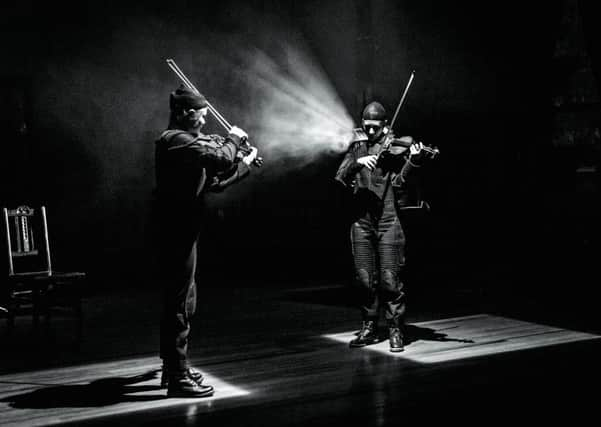Music preview: Sonica, Glasgow's festival of visual sonic arts


It’s Sonica’s fourth Glasgow incarnation, and it’s bigger and further-flung than before, stretching from city-centre events at the CCA and Lighthouse right out to the Hamilton Mausoleum (where Robert Pravda’s Monoid mk II plays on the building’s famous 15-second echo).
And the teeming jumble of festival events ranges from the indefinable to the playful to the just plain strange. East Lothian-based composer Michael Begg transforms Clydebank’s iconic Titan Crane into a giant musical instrument for his Titan: A Crane is a Bridge (vertigo sufferers are warned away), while Mexican artists Marcela Armas and Gilberto Esparza’s Sideral make music from a meteorite, and their compatriot Manuel Rocha Iturbide’s Zzzzzzzzz presents us with a gently snoring record player.
Advertisement
Hide AdAdvertisement
Hide AdPerhaps predictably, there’s plenty that explores the artistic potential of cutting-edge technology – including a trio of virtual reality experiences at Tramway, and Floex & Initi’s Archifon IV, which brings the University of Glasgow’s Memorial Chapel alive with holograms and music triggered by laser pointers. But there’s the determinedly lo-fi too: head to the Kelvingrove Bandstand to try out The Megaphone Project, where you can shout or listen through a collection of bright red megaphones to your heart’s content.
There’s a distinctly watery theme to a clutch of Sonica’s performance events, however. Aquasonic by Denmark’s Between Music listens in on a quintet of musicians performing in vast tanks of water, while Struggle and Emerge from Irish duo Lakker builds an electronic dance score out of Dutch archive recordings on the country’s relationship with the sea.
Also ruminating on the Netherlands and the sea – specifically, the 1953 North Sea floods that deluged Holland, Belgium and the UK – is Shorelines, from UK composer and Radiohead collaborator Oliver Coates and Glasgow-based director Josh Armstrong, and performed by the Ragazze Quartet, which gets two outings at Tramway on 1 and 2 November. Coates himself explains how he set about dealing with the tragedy in a theatrical work for string quartet: “The flood itself becomes the form of the music, with repeating string melodies set against taped sounds of rising density. It feels like a meditation on water for its musicality and beauty.” And where did Coates’s inspiration come from? “I dwelt on this dark night in 1953 for two years,” he explains. “I developed a terror and a mythology of water at night.”
In amid Sonica’s eclectic craziness, however, the show that’s perhaps closest to a traditional “classical” experience is Viola, a short opera by German composer Mathis Nitschke, performed on 4 and 5 November. Even here, however, there’s a big twist: the audience is seated inside a shop window (in this case, in the St Enoch Centre) looking out, while the action takes place in among the shoppers and passers-by on the street.
“I think of Viola more as an opera installation,” Nitschke explains. “It confronts the public space with the artificial power of music theatre – artificial in the meaning of anti-naturalistic. There’s hardly anything stranger than an opera singer in the street! And of course the audience in the shop window becomes a theatrical situation in itself, being watched by pedestrians in the street.”
Viola got its world premiere in 2015 in Munich, so Nitschke knows what to expect – and that means pedestrians suddenly finding themselves part of the show, or even getting involved in the action. “Yes, that happens quite a lot,” he confirms, “and that’s the beauty of it. Sometimes other people start to interact and even become counterparts to the character Viola. It’s completely unpredictable – sometimes it’s charming, sometimes playful, sometimes very harsh.”
In among what’s already a provocative festival, even one of Sonica’s more conventional offerings promises to turn convention on its head.
*Sonica runs across Glasgow from 26 October to 5 November. www.sonic-a.co.uk